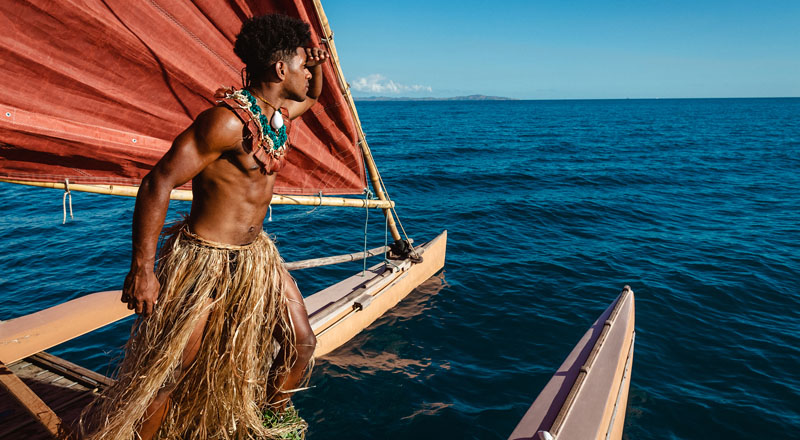Our Destination Comes
Tena tātou katoa e te iwi mīhana… (Greetings to all the people in mission),
This month’s whakataukī (proverb) is: “karanga te motu ki a koe.” (call the island to you). This is not so much a traditional whakataukī, but a modern saying drawn from Professor Te Ahukaramu Charles Royal’s work in Mātauranga Māori (Māori knowledge) and developed further by Dr Chellie Spiller of Wayfinding Leadership. Although, the saying is based on ancient ways of knowing. It encapsulates the Pacific navigator’s perspective of being stationery on the ocean and the world turning under the waka (canoe), with the destination coming towards the crew, rather than the crew approaching the destination. In the book Wayfinding Leadership, the authors write,
The wayfinder’s world is thus one of becoming – which is very different to the usual model, which has us always going somewhere between a static world of fixed things—a be-going approach. This way of looking at the world, where the destination comes to you, belies a deep belief in the power of co-creating one’s ‘destiny”…
In April I read with reflective concern each phase of David Farrier’s unfolding investigation into Arise Church, a local mega church, as well as social media comments from wider society and push backs against the exposé from some of the people of God in Aotearoa New Zealand. As I read, I recalled a meme that Australian missiologist Michael Frost posted on April 11 in the wake of the Hillsong exposé…
Christians: “Lord, send us revival.”
God: *exposes deep corruption and abuse in churches*
Christians: “The enemy is trying to attack us…!”
Attitudes that have led to abusive excess can appear in all sorts of volunteer-dependent institutions.
Throughout Scripture we read of Israel being disciplined by God via the hand of external actors—a precursor to renewal (or revival as we might understand it as Evangelicals). Should it be any different with the Church today? The attitudes that have led to abusive excess can appear in all sorts of volunteer-dependent institutions, such as churches and aid and missions organisations. Let those with eyes to see, see what the Spirit is saying to us via public commentators. We live in an era of easy exposure and exploitation and abuse (actual or perceived) is going to be called out. Accepted moralities of (most) insiders are now the moral concern of outsiders. The atmosphere around us has changed quite dramatically and the wise navigator needs to adapt to the new winds and watch the currents for their potential to pull us off course. Sometimes we need to heave to (slow up), lean on the tiller (redirect the rudder to change course), flush the ballast (get rid of unhealthy ‘weight’), and trim the sails (re-set for the winds of change). We cannot simply carry on as (ab)normal.
Even as we call our destination to us, we need to continually be responsive to our surroundings to ensure that we’re calling in the right direction rather than ineffectively fighting against the tides. The discerning navigator intuits the shifts. Where the destination was once straight ahead, it now lies to the left or the right, so we must adjust accordingly.
Missions requires a lot of ‘laying down our lives’ for the sake of the preferences of others.
Recalling my own Christian journey, I encountered leaders who were authoritative to the point of abuse. It wasn’t right, but you learn from bad examples, adjust (careful not to repeat the example), and keep calling forth the destination. Most of us who serve in missions have had to adapt to restrictions not otherwise encountered in the work-a-day world (or even in churches for that matter!). Missions requires a lot of ‘laying down our lives’ for the sake of the preferences of others (both fellow missionaries with other cultural preferences and to enhance the building of good relationships with people of the host nation). But all believers should have very different attitudes to ‘the world’ when it comes to the giving of our time, talents, and tithes for “the greater good”. We freely choose to abide by biblical and internal morality. It is part of what it means to be “in-Christ”.
In the Arise reports, it was disturbing to read some of the interviewees and wider public commentary around the church’s prohibition of sexual activity outside of marriage. Volunteer exploitation and less than stellar behaviour of the church’s leaders was rightly criticised, but expectations of sexual propriety are central to our faith and quite reasonable from an insider’s perspective (for all believers, not just church volunteers and staff) . Outsiders were horrified by such archaic views, but our destination is not the same destination as the outsiders.
Every group has rules of belonging, and ‘the Jesus way’ is no different. It is unapologetically exclusive. Sure, there is a broad invitation and many access points—everyone is welcome—but there is only one gate (or portal) through which we may enter God’s alternate reality, the destination of which is eternal life and wellbeing. That entrance way is total allegiance to Christ (often called “faith in Christ”). Allegiance requires choices that are costly, but it is always for long term benefit. As disciples we must keep our eyes on the eternal prize, anything less and our journey is in vain.
The Jesus way is unapologetically exclusive.
From the very start of the co-creation of my life in-Christ, of becoming a disciple, I was taught to endure testing of my faith, to learn from others (even when I disagreed), to give liberally and trust in God’s supply, to view trials as momentary and character building, and that being faithful in small things would qualify me for more. These basic values were navigational beacons instilled in me by my spiritual parents in the first year of my 38-year discipleship journey to this point. Last month my spiritual mum, Heather Mary MacKenzie passed away and I thanked God for her and her husband Alastair’s investment in me as a 16y/o Wairarapa wild-child. That included them endorsing me being excluded from fellowship when I was not abiding by the church’s interpretation of God’s right ways. It felt unfair and a tough call, but I received it as God’s discipline, I adapted my direction (repented), and was welcomed back.
My response had little to do with my position in a church and everything to do with position before God. I was not concerned about not being able to hang out with my friends or play in the worship band or retaining the favour of the pastor. I was concerned for disappointing Jesus and being out of fellowship with Him. I knew that if I continued along the path I was going, it would lead me out of His kingdom and I would no longer be part of His body, no longer in-Christ, and no longer worthy of an eternal inheritance set aside only for those in-Christ. That is why John says that no one truly born of God can continue to sin (1 John 5:18), we know that our destination is too precious to ignore.
So, dear friends, as we continue on our journey, giving up some things that the mainstream world enjoys liberally, we need to keep our eyes fixed on the joy set before us, just as Jesus did (Hebrews 12:2). There is never room in the waka (canoe) for exploitation, abuse, or immature behaviour that diminishes the dignity of others. Rather, we are to live a disciplined life and faithfully carry out responsibilities as followers of Christ as we call, co-create and be-come our eternal destiny. So, be encouraged, and #stayonmission.
Arohanui ki a koutou e haere ana ki te ao (love to you all as you go into the world),
Jay






